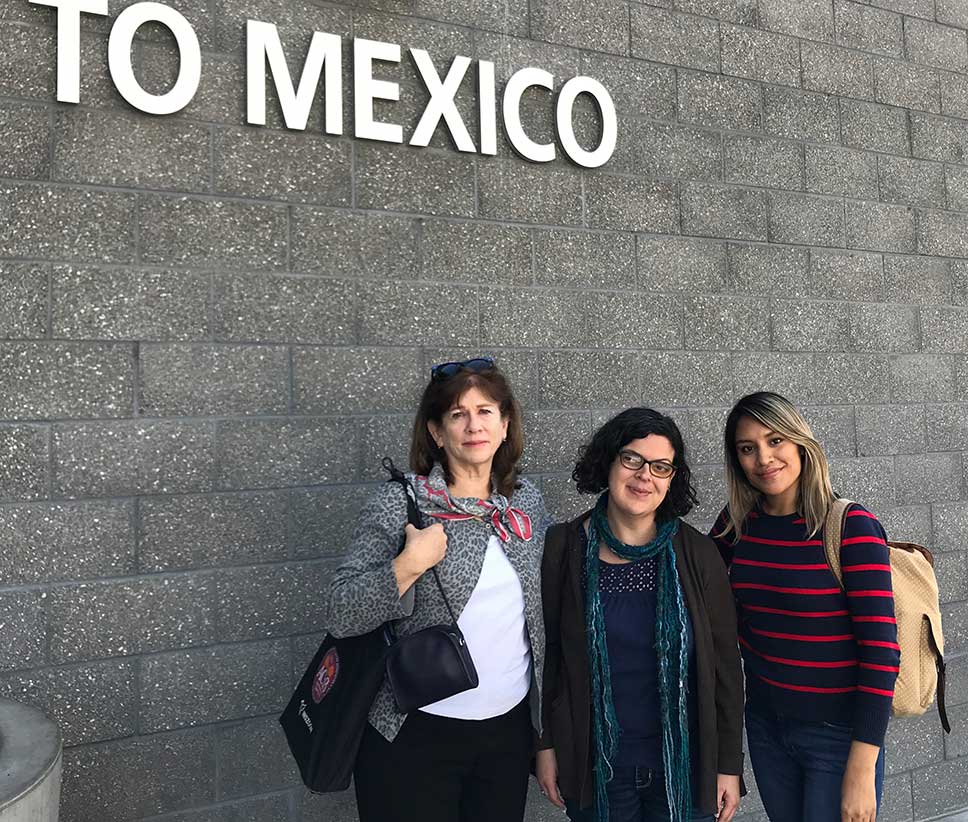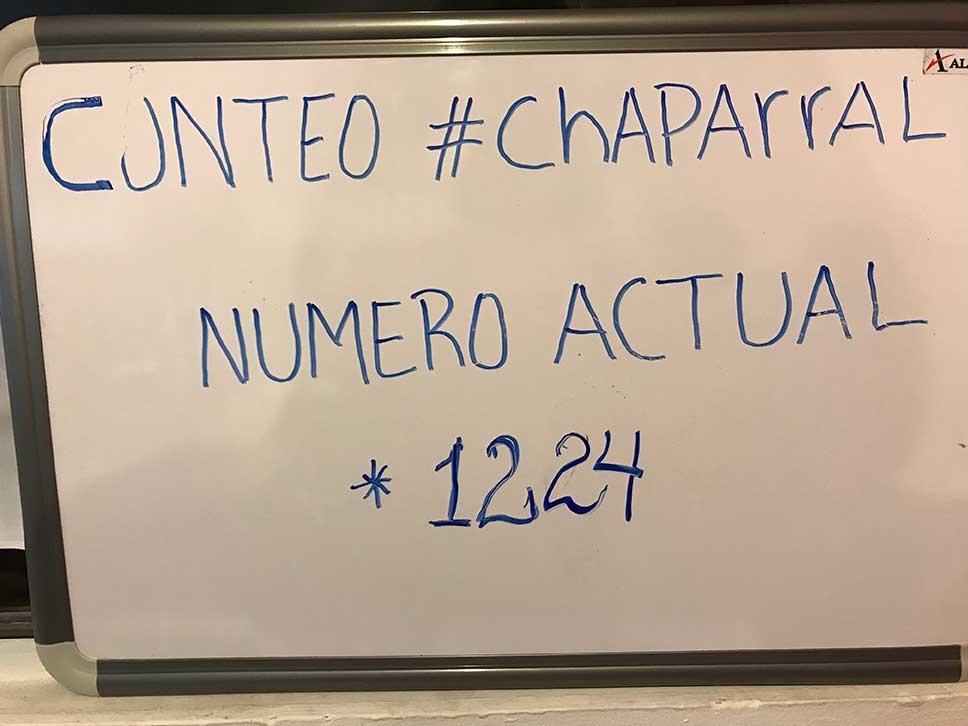Part one of a three part blog series “A View from the Border: Providing Legal Assistance to Asylum Seekers in Tijuana. Thousands of people from the Central American Northern Triangle and elsewhere – adults, unaccompanied minors, and families – have come to the Mexican towns at the U.S.- Mexican border. Most of them are hoping to request asylum in the United States but have little or no information about the requirements for asylum or the process for requesting it. Thus, legal assistance in preparing for asylum interviews is a critical need, along with the basic needs of shelter, food, and medical care. The non-profit organization Al Otro Lado put out a call to U.S. immigration lawyers to volunteer time at the border to provide this vital informatiion. Santa Clara University, with its concern for immigrants, has a particular calling to support asylum-seekers, and Clinical Professor of Law Evangeline Abriel travelled to Tijuana to help.
I arrived at the San Ysidro border crossing around noon with my colleagues Amanda Alvarado Ford, chair of our local American Immigration Lawyers Association chapter, Shoshanna Kushner and Jessica Jenkins, attorneys with the Center for Employment Training in San Jose. I am surprised at the emotional impact of the dividing line between Mexico and the United States. We walk through the long passageway from the United States to Mexican immigration and get our tourist visas and exit into the Garita Chaparral plaza in Tijuana.
To our right in the plaza is the blue tarpaulin set up for the list maintainers. The list is a controversial thing that dominates the refugee situation here. With so many people intending to seek asylum, and with the U.S. CBP taking only a few, and sometimes none, a day, a process was developed for assigning numbers to those waiting to cross. The origin of the list is not completely clear, but it is maintained by current asylum seekers, who are selected through an informal election. Grupos Beta, the humanitarian arm of Mexican Immigration, seems to have some role in it, however, and Grupos Beta members are present to give protection to the list maintainers. Grupos Beta also keeps the list at night. The U.S. government also seems to tacitly accept the existence and operation of the list. Asylum seekers give their names to the list maintainers, who write the names in a hardcover notebook and assign a number to groups of ten. When your number is called, you can proceed to Mexican immigration, who will let you through to the passage to the United States, where you can “turn yourself in” (the term used here) and ask for asylum. There is a long wait, probably weeks or months. The people in the caravan, or exodus, are way, way down on the list. The asylum seekers maintaining the list hand the task over to new asylum seekers when their number is called.
We take an uber to Al Otro Lado’s office. On the third floor, we find Luis organizing the afternoon’s charla and individual consultations. There are four stations: individual consultations, advice on possibilities for staying in Mexico; document rehabilitation (making copies of documents so tattered from the journey that they will fall apart if not renewed through a new photocopy), and parents’ documentation (statements of family relationship to try to avoid separation at the border). There are about 60 people waiting for individual consultations, and there are about twelve lawyers. We are each assigned to provide individual consultations. We are supposed to flag MVPs (most vulnerable populations). I meet with three people, listen to their stories, and try to help them form the facts into a coherent explanation of what happened to them. I also help them prepare a list of possible evidence that they can seek. I try to give them some assessment of their claims. They leave hopefully with a little more information than they came with.
We have an amazing Mexican dinner!
Coming back across the border to the United States, the CBP officer asks me the purpose of my visit to Mexico. I tell him that I was volunteering with Al Otro Lado. He asks me how things are in Tijuana with the refugees and we have a nice little chat.

Evangeline Abriel with Jessica Jenkins and Shoshana Kushner of the Center for Employment and Training, San Jose.

Al Otro Lado’s daily notice of the latest number called on the Tijuana border list.